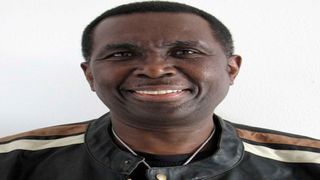
Weekend
Premium
Lockdowns, starvation and Meja Mwangi’s literary works
A place belongs forever to whoever claims it hardest, remembers it most obsessively, wrenches it from itself, shapes it, renders it, loves it so radically that he remakes it in his image,” so once quipped an American writer.
If a place indeed belongs to whoever claims it hardest, then Nairobi and other cities in Kenya at their grimiest belong to Meja Mwangi. His prose is engaging, fevered and tear-jerking. Some of Mwangi’s fictitious characters aptly capture what most Nairobians are grappling with now—desperation and hunger occasioned by job losses, salary cuts and limited business opportunities.
This is especially true after President Uhuru Kenyatta announced a lockdown of five counties, including Nairobi, on March 26, 2021 to curb the spread of Covid-19—coming shortly after escalating oil prices and the skyrocketing cost of living.
For many people like stand-up comedians and other performers, venues are closed, and stages are dark. This makes Mwangi’s distressing literature come alive, especially Kill Me Quick. Mwangi paints a chilling picture of the poor in the city; caught in the tangle of the city in a web of shadows and fearful rites of passage and yet ashamed to return to their rural homes. The story is about Maina and Meja who moved to the city with the hope of making their lives better. However, everything seems barbed and dangerous. Things don’t work, and the two young men are inadvertently caught up in the city’s hostile fire; in its gruff arrogance and taunting lilt of contempt.
Away from their rural villages, Maina and Meja roam the city like refugees wandering in other people’s countries, looking for food and shelter in an uncaring world that has shut its door to them.
They couldn’t enjoy the beauty of the city; the shimmering buildings with roaring pinnacles and sharply truncated tops; making them look impregnable, enormous, brooding and mysterious.
In the late evening sun, the buildings could be scintillating, flashing like mirrors casting a façade of grandeur upon the city.
Paved streets
But it’s hard to enjoy such a grand spectacle when one is hungry and has no place to sleep.
Maina and Meja probably loved the city’s paved streets, the smell of coffee and good food but they could only hear their stomachs grumbling as they couldn’t afford to buy even a morsel of bread.
The city knows how to break a poor man’s heart. It dangles before them everything they cannot afford but it makes sure they see it. And the city is not like the village; one can’t just wander into the farm for vegetables. Their reality was grim as the writer narrates that, “Maina hopped out of a dumpster with a paper bag in each hand and joined him. ‘Food’, he said, dropping the bags at their feet. Maina was shorter than Meja, but he was just as lean… One bag had fruit; squashed bananas, mouldy oranges, and a pawpaw that was just a mushy mess at the bottom. In the other bag were a dry loaf of bread, chocolate that looked like shoe polish and some hard scones. Maina broke the bread and gave Meja a piece. Meja had not eaten for some days, but the look of the food left him with no desire to eat. Maina went ahead to crunch on his piece… ‘A year ago, I would not touch it either’, he said. ‘I thought I would get a job…” Poverty is unjust, so said an old poem, “it befalls a man”.
The first time I read Kill Me Quick, it haunted me for a long time. To me, Nairobi, the braying capital, has always had a certain brashness and abruptness of style; always hurried and breathless, scaring the Coastal part of me accustomed to tranquility and surefootedness.
Hostile
The city looked to me (a villager) like what Mwangi describes as “a strange world where everyone was an adversary, every vehicle a dangerous beast”. Coming to Nairobi was initially like a hostile act for me.
The novel is apt for the moment as Mwangi paints most of the same challenges we are facing today: dehumanisation, poverty and starvation.
With the current prevailing conditions, many Kenyans find themselves as disillusioned and helpless as Maina and Meja. The novel has an echo of the painful existence of the masses (the ‘silent majority’) living in the lack of all things.
It’s time for leaders to at least take a few steps to alleviate the anguish. During the first lockdown in March 2020, at least there was some tax relief and other mitigating measures from government. However, in the current lockdown, there is no relief of whatever kind. The masses are suffering.
We should remember these sobering words to stir us to change course: “Days run out for me/ Life goes from bad to worse. Very soon, very much soon/ Time will lead me to the end/ Very well. So be it. But one thing I beg of you. If the sun must set for me/ If all must come to an end/ If you must be rid of me/ The way you have done with all my friends/ If you must kill me/ Do so fast. KILL ME QUICK.”





